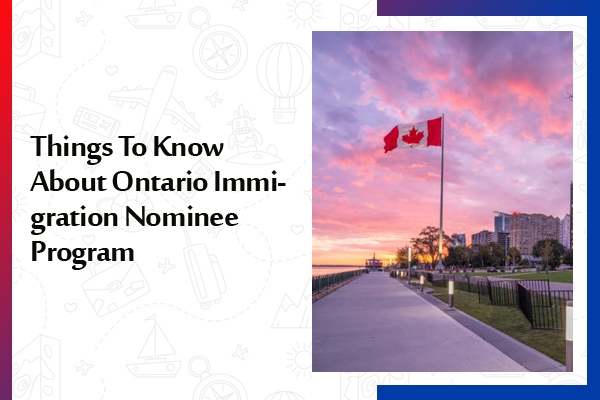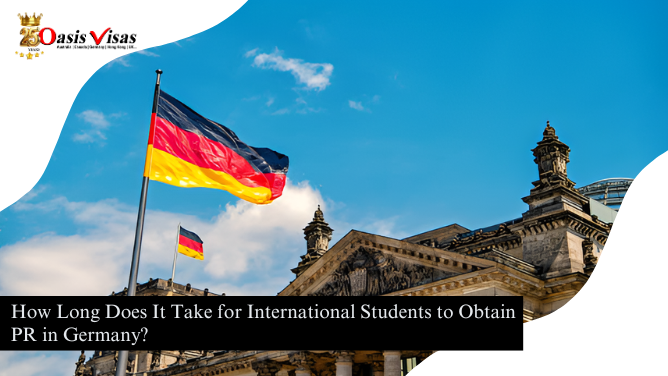
In 2021, Ontario welcomed 198,000 new permanent residents, or nearly 49% of all new permanent residents in Canada.This is not surprising as Ontario boasts Canada’s largest population as well as its largest city. Many newcomers chose to settle in Ontario due to its strong economy, well-developed support systems, and already-established immigrant communities.Those who wish to settle in Ontario have nine pathways to choose from through Ontario’s Immigrant Nominee Program (OINP).
What is a provincial nomination?
The Provincial Nominee Program (PNP) is designed to help provinces attract immigrants who can support local labour force needs.If a candidate meets pathway specific criteria and is nominated by a province, they can add this to their permanent residence application to Immigration, Refugees and Citizenship Canada (IRCC).
Why does Ontario need a Provincial Nominee Program?
Due to its already large immigrant population, Ontario was the last province to introduce a PNP in 2007. The introduction of the system created more opportunities for newcomers to Canada to economically establish themselves within the province and gave Ontario the ability to select individuals who would be a good fit and fill gaps in the workforce. Each Canadian province and territory (except for Quebec and Nunavut) operate their own PNPs.
What categories does Ontario offer?
Ontario has four streams of provincial nomination and within each category there are sub-streams, adding up to a total of nine provincial immigration pathways in Ontario.
- Human Capital Priority Steams
Human Capital Priority Streams operate in alignment with the Express Entry application system.Those who are eligible for the Federal Skilled Worker Program (FSWP) or Canadian Experience Class (CEC), are also eligible for provincial nomination in Ontario through the same streams at a provincial level if they demonstrate an intention to settle within the province.
- French Speaking Skilled Worker Class
For those who are highly skilled in both official languages, Ontario offers the French Speaking Skilled Worker Class. This operates identically to FSWP in terms of work experience, education, and proof of funds but candidates must also have a Canadian Language Benchmark (CLB) of 7 in French and a 6 in English.
- Skilled Trades Stream
Candidates who are eligible for Express Entry under the Federal Skilled Trades Program (FSTP) are eligible for provincial nomination through the Skilled Trades stream. This means candidates must have a minimum of one year’s work experience within their trade, and it must fall into National Occupational Classification (NOC) codes Minor Group 633 or Major Groups 72, 73 or 82.
- Employer Job Offer Category
If you are not eligible for Express Entry, you can submit an Expression of Interest (EOI) to the province through nomination in other categories. An Expression of Interest is applicable only when applying directly to the provincial government for nomination.
An EOI tells the government of Ontario that you wish to be invited to apply. If choosing these pathways, you may only apply to OINP if you have received an invitation to do so.
To submit an EOI, you must complete an attestation form the same day that states you meet the criteria for your chosen program and everything in your EOI is true. From here, you must wait for the province to invite you to apply for nomination.
- Employer Job Offer: Foreign Worker Stream
This is a pathway designed for foreign workers who are abroad and have a job offer from an Ontario employer.The job must fall under NOC codes 0, A or B and you must be able to demonstrate an appropriate license (where needed) or a cumulation of two years’ work experience in the same occupation.
- Employer Job Offer: International Graduates
This stream is for candidates who are graduating from colleges or universities in foreign countries that have received job offers from an employer in Ontario.The job must fall under NOCs 0, A or B. Educational requirements are as follows:
A degree or diploma that takes at least two years to complete if you study on a full-time basis, ora degree, diploma or certificate that takes at least one year to complete if you study on a full-time basis and that requires a completed degree as an admission requirement.
- Employer Job Offer: In-demand occupations
Skilled workers either in Canada or abroad with experience that falls under NOC C or D can apply for nomination if they have sufficient experience in occupations that urgently need more workers in Ontario. The occupations differ slightly depending on if the offer of employment is inside or outside of the Greater Toronto Area (GTA).
The following occupations are applicable anywhere in Ontario including the GTA:
NOC 3413 – nurse aides, orderlies and patient service associates
NOC 4412 – home support workers and related occupations, excluding housekeepers
NOC 7441 – residential and commercial installers and servicers
NOC 7511 – transport truck drivers
NOC 7521 – heavy equipment operators (except crane)
NOC 7611 – construction trades helpers and labourers
NOC 8431 – general farm workers
NOC 8432 – nursery and greenhouse workers
NOC 8611 – harvesting labourers
NOC 9462 – industrial butchers and meat cutters, poultry preparers and related workers. These occupations are only applicable to candidates with job offers outside of the GTA
NOC 9411 – machine operators, mineral and metal processing
NOC 9416 – metalworking and forging machine operators
NOC 9417 – machining tool operators
NOC 9418 – other metal products machine operators
NOC 9421 – chemical plant machine operators
NOC 9422 – plastics processing machine operators
NOC 9437 – woodworking machine operators
NOC 9446 – industrial sewing machine operators
NOC 9461 – process control and machine operators, food, beverage and associatedproducts processing
NOC 9523 – electronics assemblers, fabricators, inspectors and testers
NOC 9526 – mechanical assemblers and inspectors
NOC 9536 – industrial painters, coaters and metal finishing process operators
NOC 9537 – other products assemblers, finishers and inspectors
- Master and PhD Categories
The remaining two programs are designed specifically for master’s students and PhD students who graduate from Ontario universities and plan to stay in the province. The Masters Graduate Stream requires at least one year of study at an eligible Ontario university and graduation from the program. PhD students must complete at least two years of their PhD in Ontario. For both streams, candidates must have lived in Ontario for at least one year over the past two years.
- Entrepreneur Category
The Entrepreneur Category works somewhat differently. Candidates for this category must also submit an EOI, but if they are invited to apply, they are required to attend a mandatory interview and sign a performance agreement. If they are successful, they will be issued a temporary work permit to move to Canada and then 20 months upon arrival to implement a business plan and submit a final review. If the candidate has met business requirements, they will be asked for documentation that proves they are eligible for permanent residence.









